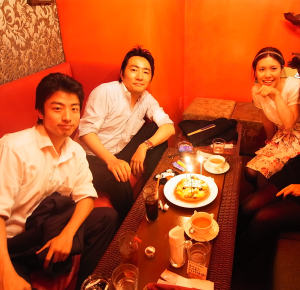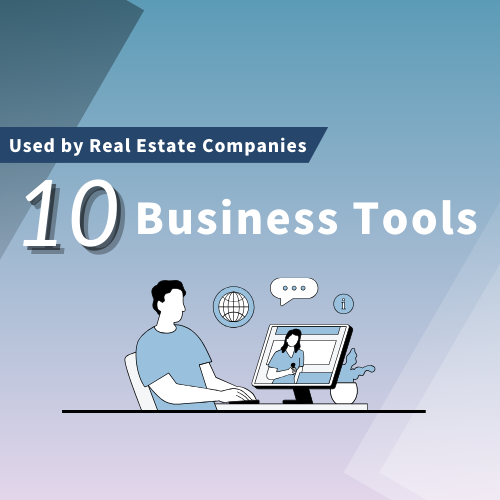The First Employee
When I established the company, the first person to join us was a young man whom I called “Tetsu.”
Tetsu was one of the many salespeople I met while searching for investment properties when I was still an employee. He was slender, with a slightly rebellious look, and although his manner was soft, I could sense a sharp, intelligent mind behind it.
After I had started the company, Tetsu came by to visit after a while. He shared that the company he had been working for had dissolved, and that the company he had joined afterward was struggling with its performance, possibly due to the effects of the Lehman Shock, and its future seemed uncertain. He spoke about many things, and I said, “Well, if you’re willing, why don’t you join us?” And that’s how he became our first staff member.
This was around 2008. Even though I had the title of CEO, there was almost nothing I could offer him, and he, like me, was doing his best to survive every day. It was a situation where we both tried to help each other out, just getting by. And even though we called it an “official” hiring, there were no formal procedures—everything started with just a verbal agreement.
Though I had the title of CEO, which led to some occasions where I was a bit pompous, tried to act cool, or had him treat me with some respect, I also felt a sense of reassurance in the connection between us, especially since Tetsu had far more knowledge and experience in real estate brokerage than I did. And with that, we began to move forward together.
Looking back at that time
And looking back, the hiring conditions at that time were something like this:
・Salary: 200,000 yen
・No social insurance
・No sales transportation expenses
・Only commuting transportation expenses provided
Additionally, we had one day off per week, and for the rest, if needed, we would take time off when we were tired. That was the system we followed, if I remember correctly.
Since we didn’t have a website, there was no way to attract customers. Besides referrals from friends and new acquaintances, the only thing we could do was to hold open houses, meeting customers and trying our best to be liked by them. I would passionately talk about the appeal of the company, which had nothing yet, and try to make as many fans as possible by conveying my thoughts. It was a desperate time.
By the way, we introduced social insurance when our employee count reached 5, including me.
Looking back now, it’s not something I can be proud of, but I still remember when the health insurance cards first arrived at the company. I can still picture the faces of the staff at the time, happily looking at the cards.
I sometimes think they might have been happy to make me happy, and that thought makes me realize how wonderful they were.

Memories from over 15 years ago when we still didn’t have social insurance.
Ms.S was our company’s first administrative staff member.
She joined as a part-timer, working 2-3 days a week, and after increasing her work days, she became a full-time employee after 3 months. At that time, there wasn’t much for us to do, and I remember telling her to start posting property information on our Ameba blog, which eventually helped build the foundation for what would later become Zerorevo.
Y, also joined as a part-timer and, after a while, became our second salesperson, helping to boost our momentum. He later transitioned to the IT world and has been active, even taking on an overseas assignment!
Lessons Learned from Encounters and Farewells
Since then, we have hired many staff members, but due to the company’s immaturity, there were several people who left for various reasons. Some left because they felt they couldn’t be themselves here, some sought new environments because the grass seemed greener elsewhere, some chose to become independent and pursue new paths, and others ventured into different industries.
Each time, I felt heartache and sadness, but I also engaged in self-reflection and repeatedly faced the challenge of new hiring efforts.
While saying “We will become a better company than yesterday,” I gradually worked on improvements. However, the company’s weaknesses and challenges were well understood by the CEO and the top management, and I, deep down, also knew them. Yet, I made excuses with the company’s limited resources and economic situation, tried to maintain a strange sense of fairness, and, most importantly, lacked the courage and decisiveness to directly confront the issues. I vaguely realized that this was the reason we couldn’t move forward as expected.
The strongest feeling I had about needing to address the reasons we couldn’t progress came when there was an unpleasant resignation.
It was only when someone was hurt and left due to the immaturity of the company, my ignorance, and the lack of courage in the way things were run that I finally understood the meaning of it (though it took some time), and it became a catalyst for changing the company’s operational policy.
Although we are still far from perfect, I believe that the fact that we have become a group heading in the right direction, striving to be a better company, is thanks to all the staff who have worked with us after Tetsu.
We are now in our 18th year, but recruitment activities have become increasingly challenging. In this context, I feel that it is even harder to find individuals who can be considered the “right talent” for our company.
In the next part, I will talk about what “good talent” means to our company.
<Afterword>
As of February 2025, I feel that our company has come a long way and is now much closer to being a “white” company compared to the past. There may still be some grey areas, but as a company, we are continuously growing while thinking every day about how we can become a better organization!


![[The CEO Speaks] What We Value in Recruitment (Part 1) – Our First Encounter with Staff and the Lessons Learned from Employees Who Left](https://livingtokyo.net/wp-content/uploads/2025/01/AKR53360.jpg)

